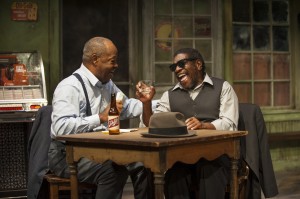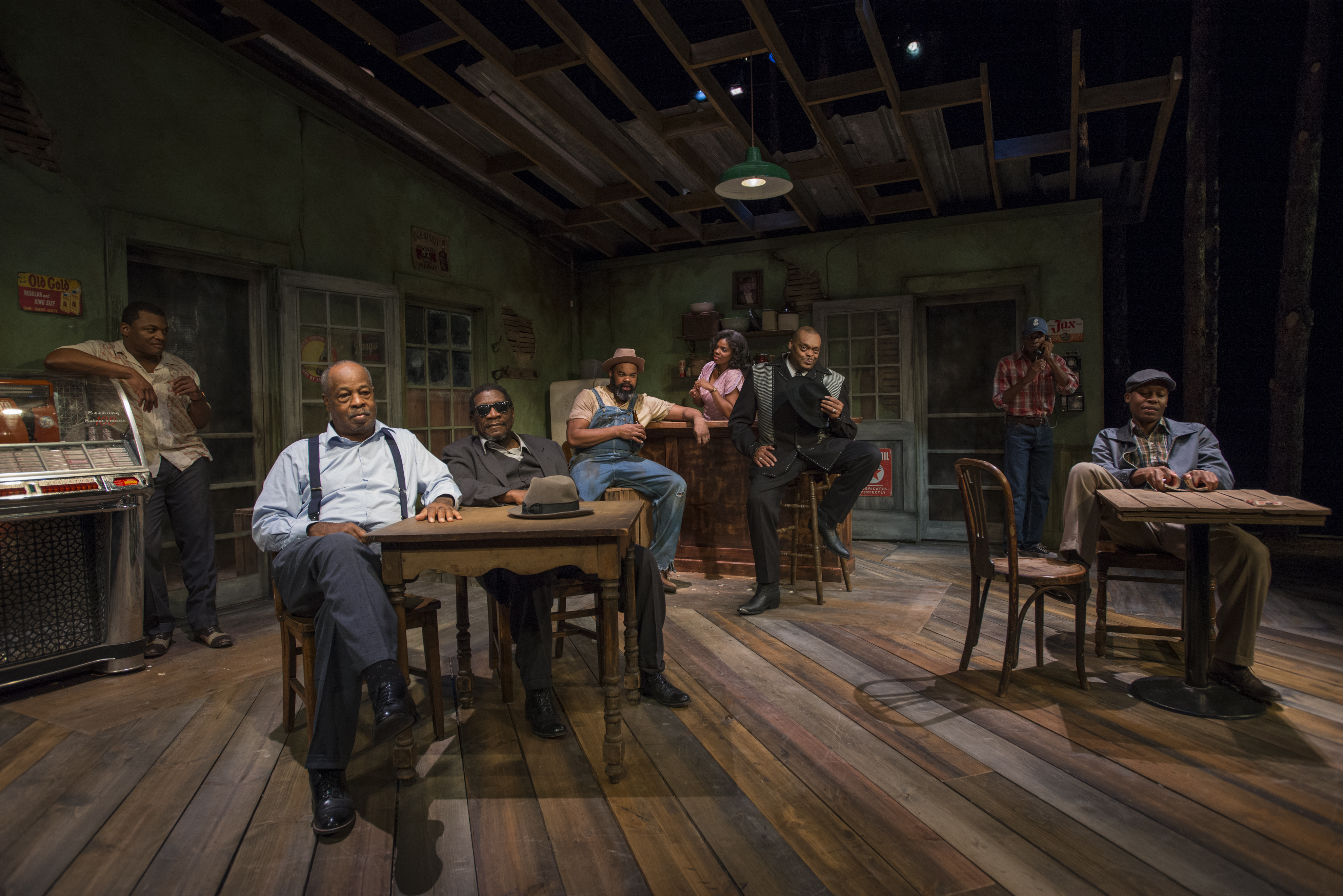Beginning on March 5, actor Eugene Lee returns to the Huntington Theatre Company to star in How I Learned What I Learned, August Wilson’s powerful, inspiring theatrical memoirs.
Wilson’s Century Cycle, 10 plays that each detail a different decade of the African-American experience in America, are among the most important and influential in American drama.
Both Lee and the Huntington have a long, rich history with Wilson and his plays. It is hard to think of an actor—or a theater company—more suited to bring this story to life.
Speaking by phone the day before he arrived in Boston, Lee spoke to me about his favorite August Wilson memory, the enduring appeal of his plays, and what he thinks of nontraditional casting.
You’ve done several August Wilson plays at the Huntington, so this is like a homecoming for you.
Yeah, it is. I did Gem of the Ocean, Fences, and Radio Golf.
How involved was August Wilson with Gem of the Ocean and Radio Golf here in Boston?
Very much so. The plays, they traveled around to regional theaters, and he was working on them constantly at each of the stops. And actually, the last stop before Broadway for both of those two plays was the Huntington. And at the Huntington, for example, for Gem of the Ocean, he was there and the play was running over three hours. He was being told from all angles and all sides that we can’t go to Broadway and keep those union workers after 11 at night. [laughs] The week before we left Boston, he came in and he cut like 45 minutes out of that play. The week before we left.
What was it like having him present through the whole rehearsal process?
It’s great, man. That’s the source, if you know what I mean.
Intimidating?
No. I’d say not. It’s such a wonderful learning experience, to have him there and to have a firsthand insight into the inspiration, the nuances, if you need them. For most of the people that I’ve worked with with August, especially the quote-unquote “Wilsonian Warriors,” as we’re known, it’s nice to have him around just for confirmation, in some cases. It was a joy to have him around. He’s a great guy and a wonderful teacher.
How much do you draw from your memories of August? Is it that kind of performance?
No. That kind of mimicry or whatever was never a target for me with this. I’m channeling his storytelling, I’m channeling his inspiration for all of these characters. I try to find clarity and truth in whatever I’m doing. I don’t know that I necessarily look much like August, but there are common denominators, and I didn’t want to cheapen my sense of truth, my sense of this man. We share some of the same kind of challenges in our journey, if you know what I mean. I grew up in a segregated Texas, and so we both, in a strange kind of way, are part of what I call the “transitional generation” even though he’s a little older than me. I identify with so much of his storytelling, from the first kiss in the seventh grade to moral and ethical challenges and disappointments with the world and with people. And not necessarily white people. I recall hearing him talk about transitioning from hate to disappointment in terms of the world and the people in the world.
Do you consider it an honor to be doing this play?
Very much so.

Josh Lamkin Photography
Why do you think that people continue to flock to his plays?
Any number of reasons. The language is beautiful to listen to; the characters are recognizable. It’s, “That’s my cousin,” “That’s my daddy’s baby sister.” And it’s the truth. They’re characters that you understand even though you don’t like what they do, for example. That’s the kind of thing that people want to go to the theater to see. They want to see themselves; they want to see their strengths, their pain. They want to see people grappling with the same kinds of demons. And they want to see their history. That’s another part of what August has done in a wonderful way: He’s documented what these newly freed slaves in this experiment called America did with their freedom over a decade. One 10-year period at a time. And it’s wonderful to me to experience all 10 of these plays and watch these people move further away from Africa with each decade. And even in the rhythms in the language, from freshly freed slaves in 1902 in Gem of the Ocean to playing golf, Radio Golf, at the end of the next century. Just what these people did with their freedom is amazing to me, and I think that’s what so much of what those 10 plays, that cycle, is about. And it’s history and it’s knowing who we are and where we came from. It helps us make it to tomorrow in a lot of ways.
What is your favorite August Wilson memory?
There are a couple that are very selfish. When he saw me do Troy in Fences in Atlanta with [director] Kenny Leon, when he first started his theater company True Colors. That’s the most time I ever spent with August, actually. After he saw the first preview, he said, “That’s Troy. All the colors.” It was the most simple thing that he could have said to me, but nothing has ever made me feel better about what I was doing than hearing it from him. That’s my favorite August memory.
The Huntington has been very committed to August Wilson. As you know, it’s done all 10 of his plays; this is the 11th. What is it like working with the Huntington on August’s plays? Do you notice a special commitment?
I do notice that. All the way down to the outreach, to the schools. There’s a commitment to building an audience not only for the Huntington, but for this playwright and for his storytelling, to take it out into the schools in that way. And that speaks to their commitment as much as the fact that they’ve done all ten of them.
I’m so glad that kids get exposed to this kind of theater.
Oh man, it’s important; it’s important that they see more than just Tennessee Williams and Arthur Miller and William Shakespeare. It really is important. I work at Texas State University as an artist in residence, and I’ve been on a mission since I got here for them to share the wealth, you know, even with this concept of nontraditional casting. Yeah, that’s great for educational theater, but these young black and Latino students need to sit in their own stories. They shouldn’t always be asked to play white roles. It’s unintended, but it’s the way it’s always been. I have to say to them, “Look guys, we’ve got to turn this corner, we’ve got to make a conscious effort to involve as many of these students and to give them the opportunity to let them sink their teeth into some of their own cultural truths.” We owe them that, I think. August used to have the same discussion about asking black actors to pose in white roles. I’ve done enough of that in my life.
Do you think that How I Learned What I Learned is a fitting grand finale for August Wilson?
Yeah. I don’t think it was intended to be that, so it probably makes it more fitting. I think we’re all teachers and I know that about August and his work. And where there’s teaching, there’s learning. Basically How I Learned What I Learned is this 20-year-old poet in Pittsburgh identifying as our moral compass, picking the roads he was going to travel, making some choices, writing about some challenges. There’s plenty to be learned from what he learned. One thing that this play speaks to is that he talks about—and it’s in the title—how I learned what I learned. I’ve always believed that that’s the most important lesson that I learned, and that’s how to learn. I mean, speaking as an actor, I never know what my next job is going to ask me to know. And that’s a really wonderful, thrilling place to be.
Article

 news feed
news feed






